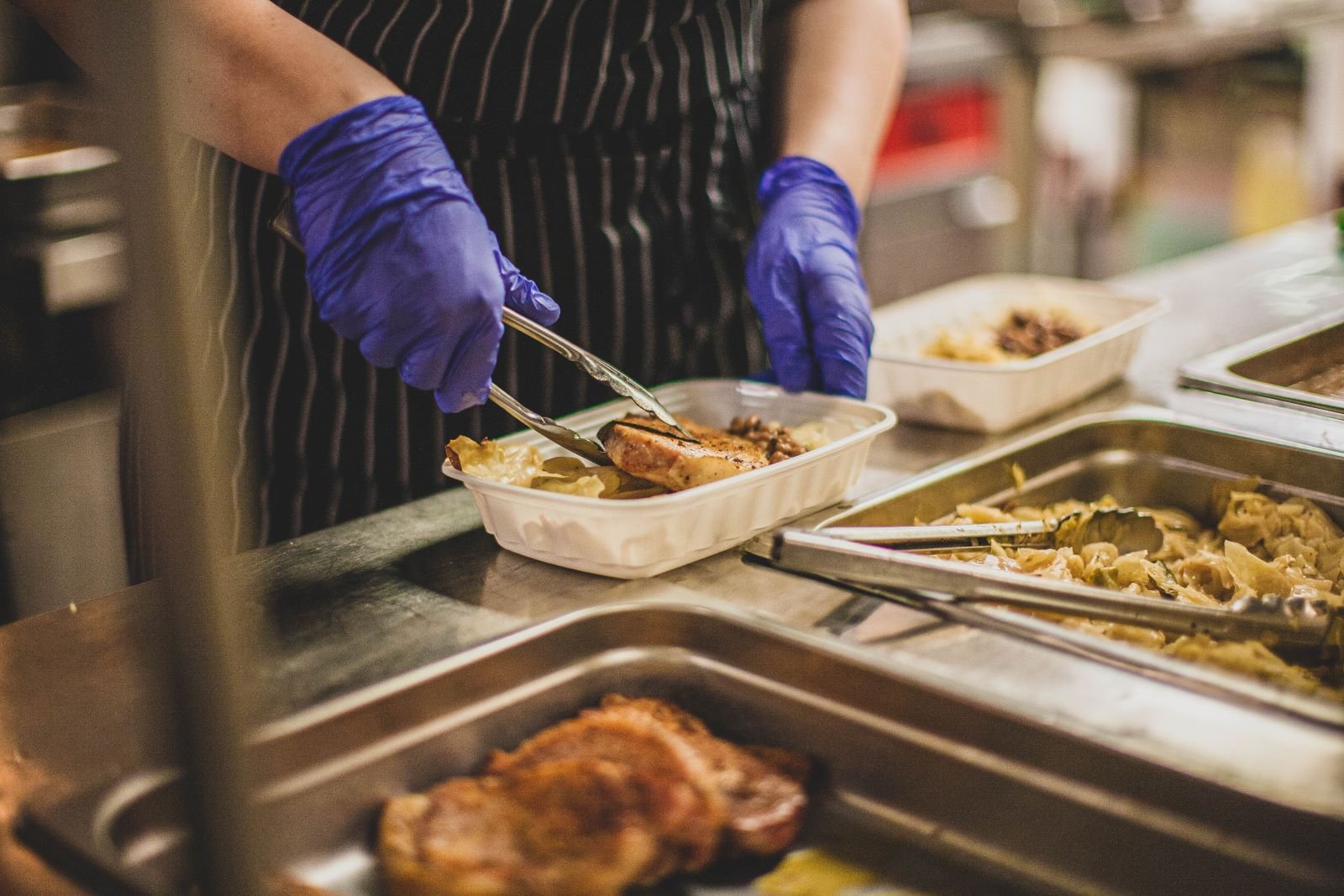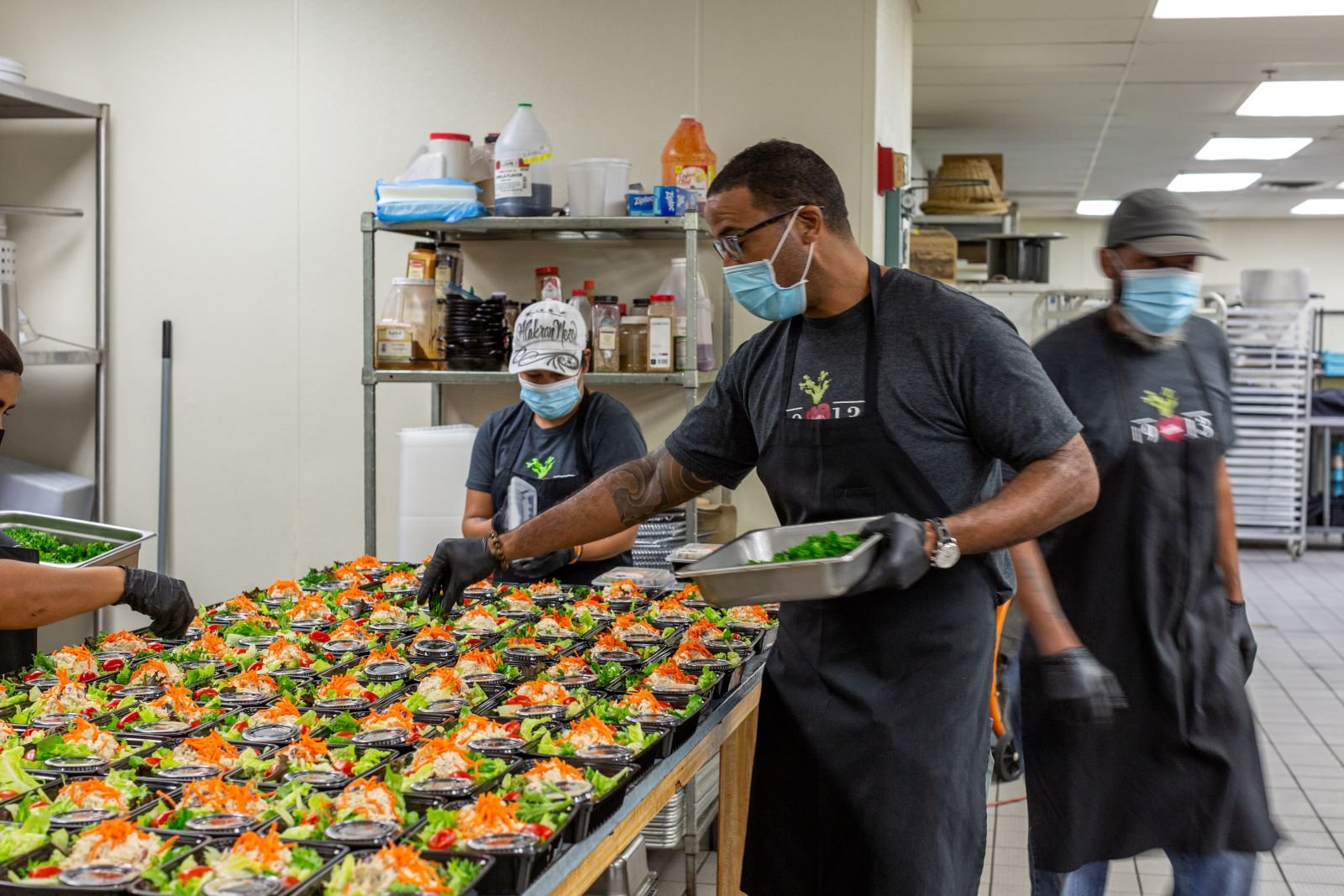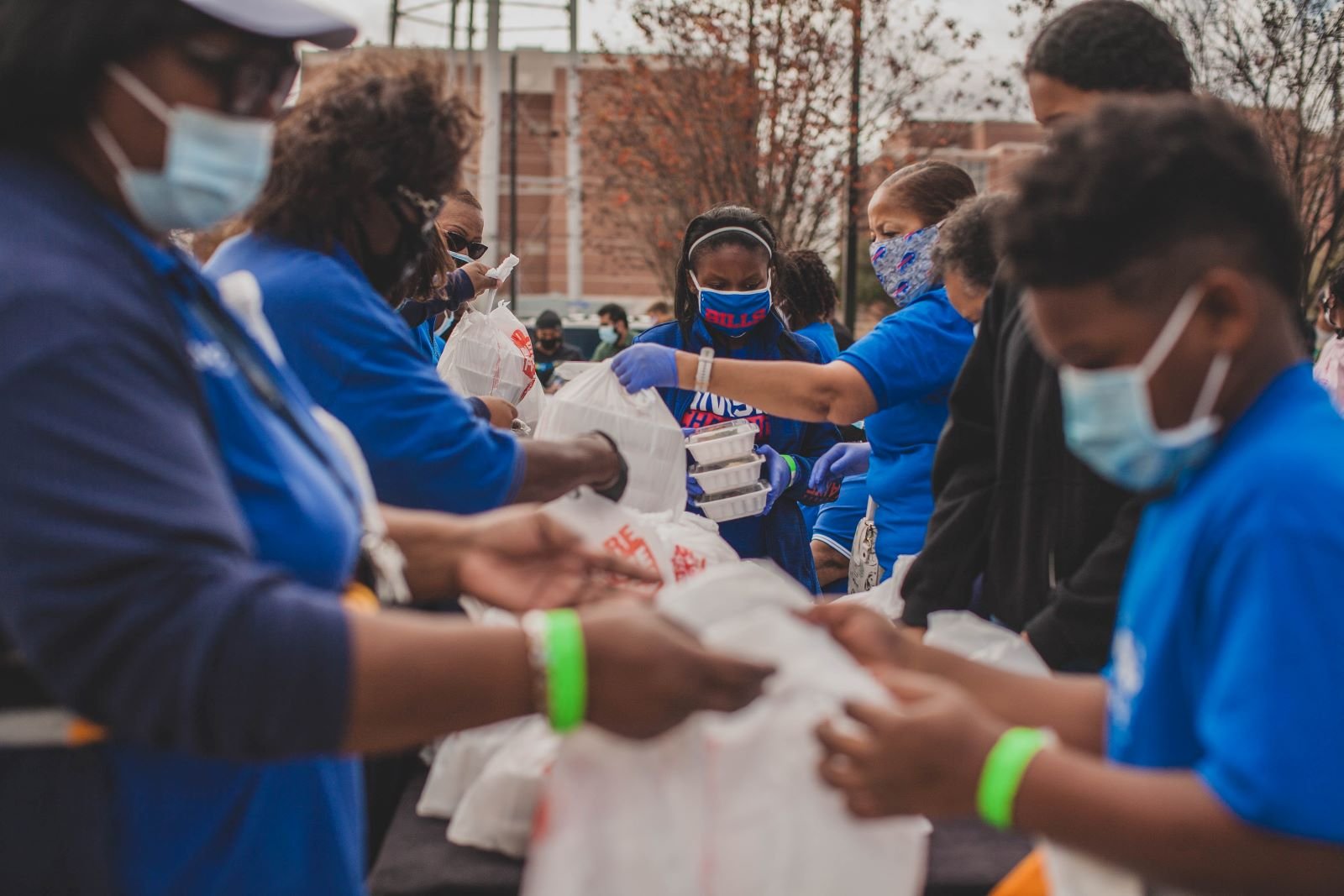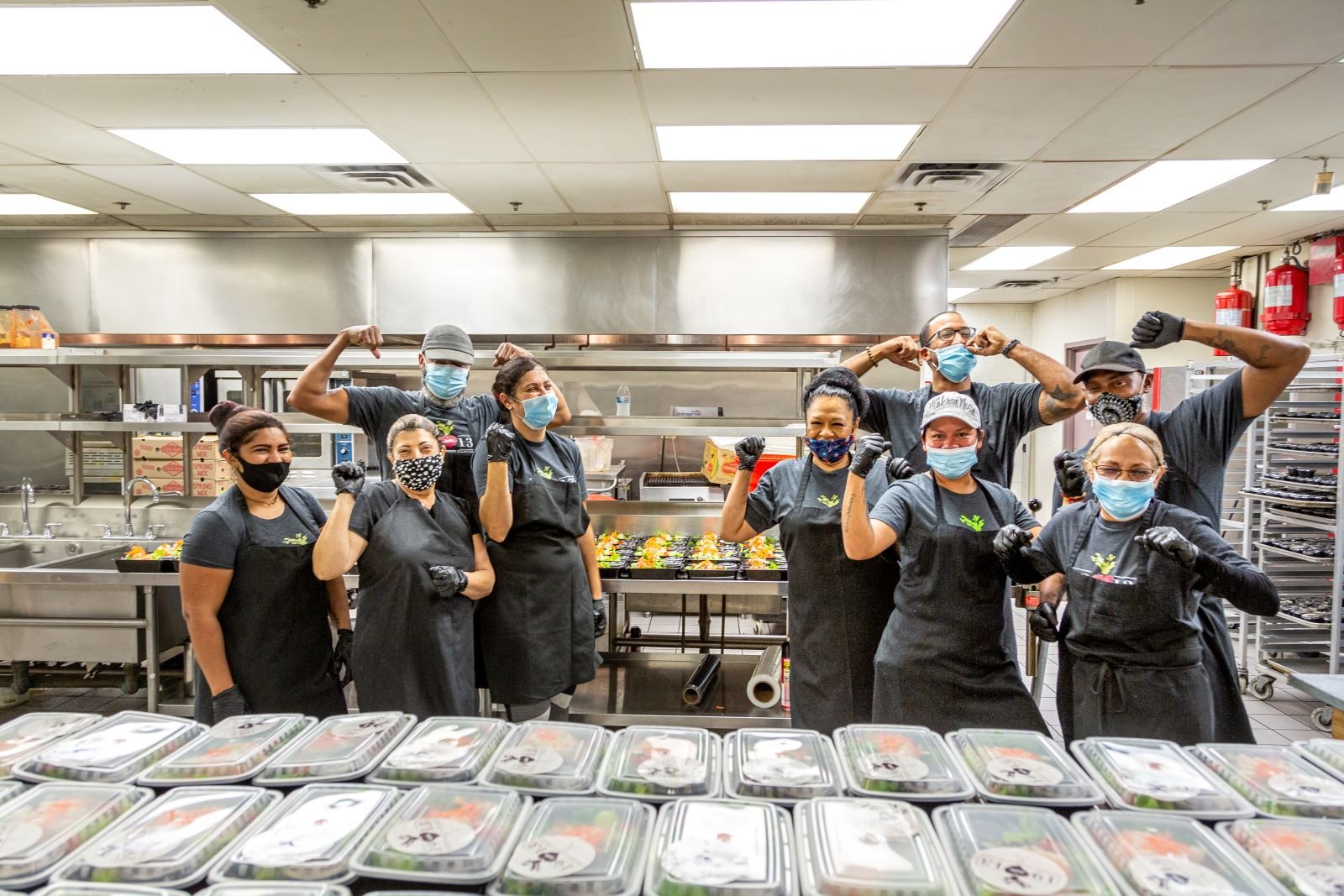Chef Chris Williams believes that Juneteenth isn’t a time for celebration, but for service.
“I never considered Juneteenth a day to be celebrated because I’m just not comfortable with celebrating, you know, decency winning the day,” he told Global Citizen. “I have traveled in Europe, Asia, all over, but [in the United States], all I can see is the experience of my ancestors just trying to survive.”
Juneteenth commemorates the day federal soldiers arrived in Texas after the end of the Civil War to announce that slavery in the United States had ended and all enslaved people in Texas must be freed. While President Abraham Lincoln had signed the Emancipation Proclamation two years prior, the date June 19, 1865, became known as “Emancipation Day” and is widely celebrated throughout the United States, holding particular meaning for African Americans in Texas.
Today, Juneteenth celebrations take the form of marches and parades around the country. Families gather with neighbors and friends over platters of favorite foods, made from recipes passed down through generations. Many people choose to curate meals inspired by dishes of the African diaspora, with some Black chefs using their talents to honor African American culture and celebrate with their communities.
Williams’ family has lived in Texas for 180 years, setting roots from Fort Worth to Houston. While he did not grow up seeing Juneteenth as a holiday — and points out that it has never been recognized nationally until this year — many of Juneteenth’s themes are imbued in his work, namely the power of food and the importance of community.

In 2012, after years spent traveling around the world honing his skills and finding culinary inspiration, Williams co-founded the restaurant Lucille’s in his hometown of Houston, Texas. Named in honor of his great-grandmother, Lucille B. Smith, Williams sought to provide patrons with a communal dining experience and include recipes passed down through his family, as well as introduce new ones.
The joy Williams felt sharing his creations with neighbors was hampered by the effects of Hurricane Harvey, which caused millions of dollars in damage and displaced thousands of people in coastal Texas in 2017.
“Back during Harvey, no one had access to [Lucille’s]. I had to get the groceries and, because I hate waste, we just started cooking and taking it to the people in need,” Williams said. “Over the first six days we did close to 4,000 meals with a team of four. As the word started to get out, our neighbors stepped up to volunteer their time and support one other. It was a beautiful thing.”
It’s not surprising that the next time his community experienced a crisis, Chef Williams rose to the challenge. Last year, the COVID-19 pandemic forced non-essential services to close as Houston issued the "Stay Home, Work Safe" order. As health care facilities became overwhelmed with rising COVID-19 cases, frontline workers were experiencing long shifts and dwindling PPE. To both keep his staff employed and thank first responders, Williams started providing delicious and nutritious meals to people working the night shift so they didn’t have to worry about where to get a quick bite.

“We made a commitment to our staff that everyone would stay on who wants to,” he said. “I thought, ‘Let’s go out to help the people that nobody has considered, let’s go out to the graveyard shift.’
“It became addictive, seeing the joy and the peace and the comfort that it brought these people, and that really reminded me about the power of food,” he added.
Williams started thinking about how else he could serve his community, which led him to partner with World Central Kitchen, a nonprofit that provides meals in the wake of natural disasters. With their help, Williams’ staff began to feed people who experienced food insecurity in Houston neighborhoods, particularly elderly populations.
“I started to think about our neighborhoods, in particular Sunnyside, where my father’s family is from, and we started doing food over there,” Williams said. “These are my elders. Even though I didn’t know them personally, I know them. I’m cooking for them the way I cook for my grandmother, my family, because I know what they want to eat.”
In addition to the love of food passed down through his family, service is another aspect found in Williams' DNA. In 1913, his great-grandmother Lucille started a catering business in Fort Worth, using the profits to fund community service projects. Her legacy, coupled with the desire to expand outreach in his community, inspired Williams to start a collective dedicated to lifting his neighbors out of food insecurity, called Lucille’s 1913.
“The reason I named it ‘1913’ is because we started [this collective] for the same reason my great-grandmother started her business: She saw a need in the community and she had her skill sets that allowed her to benefit the community,” Williams said. “She used her skills to have an impact, and her skills are my skills.
“The unfortunate thing is that there’s nothing but opportunities out here when it comes to food insecurity,” he added. “So we started providing these services, cooking fresh meals every day for five days a week, around 1,800 meals a day.”

While the percentage of people in Houston counties who experience food insecurity has steadily declined in recent years, the COVID-19 pandemic introduced new challenges to people trying to access sufficient, safe, and nutritious food.
Food banks in Houston found themselves unable to meet the growing demand as thousands flocked to their doors. While the federal government expanded benefits to the Supplemental Nutrition Assistance Program (SNAP) — which provides financial assistance to people who struggle to purchase food — many people using SNAP also faced disrupted access to grocery stores or had little to no vehicle access, further harming their ability to access food.
People living in one of Houston’s food deserts — an area where it is difficult to access affordable and fresh food — experience these challenges at higher rates, particularly in Houston’s Sunnyside, Third Ward, and Greater East End neighborhoods. These neighborhoods are also majority Black populations.
These are my elders. Even though I didn’t know them personally, I know them. I’m cooking for them the way I cook for my grandmother, my family, because I know what they want to eat.
Chef Chris Williams
For Williams, tackling food insecurity in Houston through meal distribution was only delaying the problem. He figured that the next step for Lucille’s 1913 would be to solve it by giving people control over their food.
“I look at food insecurity and wonder, how is this possible? And the answer is because there’s no ownership. Everything comes from food security — you can’t build shit until you know that you can eat, and if you can’t eat, there is no growth,” Williams said. “We felt it was important to be masters of our own food security because everything starts there.”
That belief led Williams to channel Lucille’s 1913’s efforts into a vertically integrated ecosystem that tackles food insecurity, food waste, and allows people to develop the agricultural and culinary skills necessary to work with food. Having acquired 52 acres of land in Fort Bend County, Texas, Williams plans to employ over 100 people to grow, cook, and sell food within his community.
“We take in these young brothers, sisters, parents, and we created a program to develop their relationship with food from seed to harvest to production to responsible waste,” he said. “They are going to learn how to grow the food, taste it out of the dirt, and sell it to their own community at cost. Any scraps that can’t be used in the cooking process will go back into the farm as compost.
“These people will be paid every step of the way. My only prerequisite is that you don’t know shit about food,” he jokes. “You come to our doors and we’ll teach you everything.”
As Williams prepares to lift this project from the ground up, Lucille’s 1913 is still working to distribute meals to people in need. As part of these efforts, the collective is involved with two events to honor the spirit of Juneteenth this year.
One is a dinner benefit hosted by Chef Dawn Burrell, who is currently competing on Top Chef: Portland. The immersive five-course dinner — named “Jubilee” in honor of the Jubilee Year, which took place in 1913 to celebrate the 50th anniversary of the Emancipation Proclamation — will feature dishes from four Black chefs sourced completely from Texas vendors. Proceeds from the dinner will go to Lucille’s 1913.

The second is Lucille’s 1913’s initiative to distribute over 1,000 meals to those in need in partnership with Emancipation Park. In 1872, a group of Black religious ministers and businessmen purchased 10 acres of land in Houston to commemorate Juneteenth. Naming it Emancipation Park to honor the day that enslaved people in Texas learned of their freedom, the group provided the location for generations of African Americans to celebrate the holiday for years to come.
Though many communities around the country honor Juneteenth with celebrations and parades, Williams is steadfast in his belief that the day will remain a working day for him.
“I’m grateful to my mother and father for putting in me that this is not a day to kick back and take it easy. It’s a day of work,” he said. “I think [Juneteenth] is for acknowledging the terrible history we have and the psychological pains that are impacting us today.
“The way my family acknowledges it is through service,” he added, “like we always have.”